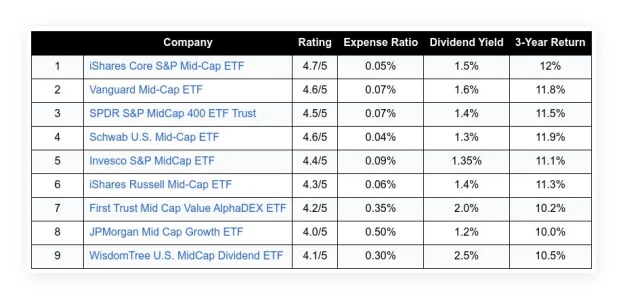It’s common for people to imagine retirement as being endless free time – mornings without alarms, lunches at leisure, afternoons spent doing whatever you want. According to an Age Wave study, 72% of retirees report that they can “realize their hopes and dreams,” suggesting a sense of independence and freedom. No wonder, according to a survey released in 2024, that 67% of retirees (15 years or less into retirement) report being happier, and 82% report feeling more relaxed since retiring.
But for many retirees, it’s more complicated. The idea of having all the time in the world sounds great till you realize you still have to do something with it.
In reality, retirees are experts at managing time in a way that most working people don’t: having complete control over their schedules. No matter whether you’re retired, self-employed, or looking to improve your work-life balance, that’s a key skill to master.
Here’s what retirees can teach us about making the most of unstructured time — without slipping into boredom or drowning in guilt for “not doing enough.”
Table of Contents
Toggle1. Structure Is Your Friend — Even When You Don’t “Have” To
When you ask retired individuals how their days are, you’re likely to hear something like this:
“I don’t have a job anymore, but I still keep a schedule.”
Although their schedule isn’t rigid, they still have a morning routine, a day they run errands, or a pickleball game every week. When these anchors are absent, days can easily blur together, leading to aimless time-wasters.
Takeaway for non-retirees:
- Even if you work from home or have flexible hours, block time for the essentials, such as workouts, errands, and hobbies, by doing so, your days have a rhythm.
- Make sure you keep recurring commitments in your calendar so you always have something to look forward to.
2. Know the Difference Between Leisure and Distraction
It can be difficult for new retirees to distinguish between doing nothing on purpose and doing nothing by accident. First, it feels restorative; second, it can be guilt-inducing.
Are you watching a movie you’ve been wanting to see? Leisure. Mindlessly scrolling for hours because you can’t decide what else to do? Distraction.
In retirement, retirees who master time freedom become intentional with their downtime. By planning their leisure, they make it more enjoyable.
Takeaway for non-retirees:
- Schedule downtime just like work tasks to allow yourself guilt-free downtime.
- Fill your time with leisure activities that genuinely relax or inspire you, rather than filling it with what feels convenient.
3. Keep a Purpose Beyond Productivity
One of the most difficult adjustments for retirees is losing their sense of purpose. The happiest people find new ways to feel useful by volunteering, mentoring, caring for their families, or taking on personal responsibilities.
It doesn’t mean replicating a career pace. In the end, it is about knowing that you still have a contribution to make.
Takeaway for non-retirees:
- Ask yourself, “If work disappeared tomorrow, what would I want to work toward?”
- Whether you assist a neighbor, start a creative project, or learn a skill that helps others, plan at least one activity that makes you feel valuable and connected.
4. Balance Routine with Novelty
When you have too much routine in your life, you may feel repetitive; if you have too much novelty, you may feel overwhelmed. Some retirees experiment until they find a balance — perhaps a steady morning routine and an open afternoon.
Unlike most people, they understand that novelty doesn’t have to be dramatic. Even something as small as trying a new recipe, taking a different walk, or reading a book from another genre can be the beginning of an adventure.
Takeaway for non-retirees:
- Are you craving more stability or more variety in your schedule?
- Regularly tweak your routine to keep it interesting without disrupting everything.
5. Redefine Productivity
When you retire, you often spend less time on productivity and more time on enjoyment or personal growth. Spending a day gardening, reading, or having lunch with friends can be just as valuable as working all day — it just depends on how you define “value.”
Those who are happier retirees measure their productivity based on how much time they enjoyed, not how much they completed.
Takeaway for non-retirees:
- At the end of the day, identify two or three non-work activities that leave you feeling satisfied.
- Rather than just counting work achievements, track those as “successes.”
6. Stay Social on Purpose
Social interaction is a natural part of work. But that’s not always possible in retirement. As a result, many retirees go out for coffee with friends, join clubs, or attend classes, because without effort, social time can quickly disappear.
Having social connections isn’t just fun; it can help combat loneliness and improve both physical and mental health as well.
Takeaway for non-retirees:
- Make time for regular social interactions that don’t revolve around work, such as weekly telephone calls or regular lunch dates.
- Treat socializing as a key part of your “time budget.”
7. Embrace “Slow Starts”
Retirees often mention that one of their greatest joys is not having to rush out the door. It’s okay to begin your day slowly and unhurriedly — reading the news with a cup of coffee, taking a stroll, or simply letting your mind wander.
There’s nothing lazy about these slow starts; they’re deliberate decisions that set a calmer tone for the entire day.
Takeaway for non-retirees:
- If you have a busy schedule, try setting aside one or two mornings a week where you don’t immediately start working.
- Instead of reacting to demands right away, use that time to reflect, journal, or ease into the day.
8. Accept That Some Days Will Be “Quiet”
Retirement isn’t always an adventure — and that’s alright. When a day passes without significant accomplishments or plans, the most content retirees don’t panic. Quieter days often recharge them for more active days.
Takeaway for non-retirees:
- Let go of the expectation that every day must be optimized.
- Allow yourself to have low-pressure, slow days without calling them “wasted.”
9. Keep Learning
It’s common for retirees to spend their free time learning — whether it’s a new language, woodworking, painting, or tech skills. In addition to keeping the mind engaged, lifelong learning adds to the sense of progress.
Takeaway for non-retirees:
- Decide on one skill or topic you’ve always wanted to learn and commit to learning it slowly and consistently.
- If you’re unsure, choose something purely for curiosity or joy instead of tying it to your career.
10. Plan for the Week, Not Just the Day
In retirement, it’s easy to forget about more than just “today,” leading to inactivity for long periods of time. The simplest way to do this is to sketch out the week ahead: which days they’ll socialize, run errands, work on projects, and rest.
Takeaway for non-retirees:
- Schedule your commitments and leisure activities every week.
- You can achieve a sustainable balance between productivity, relaxation, and social time by doing this.
Bringing It All Together
Having to rewrite their schedules after leaving the 9-to-5 structure, retirees have a unique perspective on time. The happiest of them are:
- Maintain some structure without overscheduling.
- Stay intentional about leisure.
- Connect with others and maintain a sense of purpose.
- Don’t feel guilty about slower rhythms.
You don’t have to wait until retirement to apply these lessons. If you use them now, you can take more advantage of your “time freedom” — whether you are a freelancer, a remote worker, or just someone who wants to reclaim evenings and weekends.
In the end, time freedom isn’t about having more hours. It’s about knowing what to do with them.
FAQs
How do retirees avoid boredom?
In addition to recurring activities and new experiences, they balance structure and variety. As well as staying socially active, they continue to learn.
What’s the difference between leisure and wasting time?
Leisure is intentional and restorative; wasting time occurs when you engage in activities without purpose and feel unsatisfied afterwards.
How can I bring more “retiree wisdom” into my work week?
Schedule in slow mornings, small rituals, and planned leisure. A few “unstructured” blocks can make a big difference.
Do retirees ever feel guilty for not being productive?
Indeed, but the happiest define productivity as rest, enjoyment, and personal growth as well.
What’s the biggest takeaway from retirees about time?
Freedom from time constraints requires intention. Without it, the days can blend. Even unstructured time can be turned into something meaningful when you use it.
Image Credit: Lukas; Pexels

















